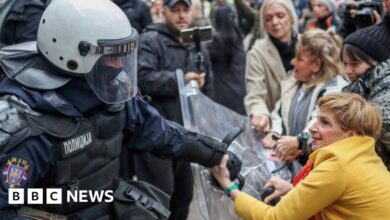Can a 24-hour drinking zone change a city?
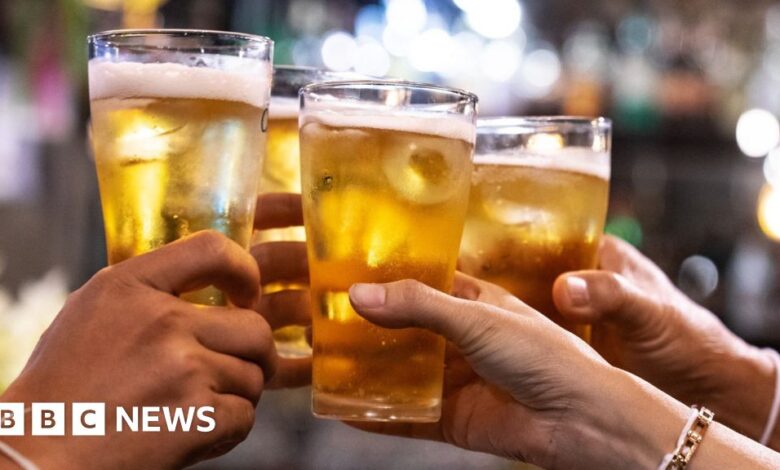
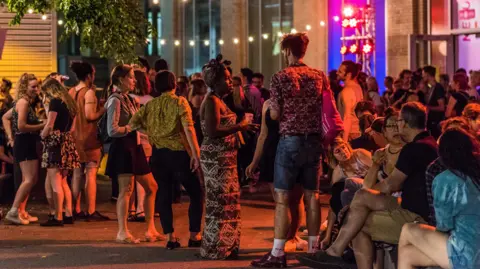 Catrine Daoust
Catrine DaoustWhen Frank Sinatra sang about “a city that never sleeps,” he probably wasn’t thinking about the economic boost a vibrant nightlife can bring to a metropolis.
However, more and more cities around the world are focusing on ways to strengthen their night-time economies.
About 100 cities now have some form of “night mayor” or “night czar” to promote this work.
But most of those cities, including London, Sydney, and Sinatra’s beloved New York City, don’t have all-nighters. In other words, they don’t allow bars and nightclubs to stay open and serve alcohol 24 hours a day.
However, later this year, Montreal – Canada’s second largest city – is planning to open up 24-hour nightlife.
Following in the footsteps of Berlin and Tokyo, venues in downtown Montreal’s new all-night zone will be licensed to open and serve alcohol all night long.
City officials say the move will bring in hundreds of millions of dollars in additional revenue. Currently, bars and clubs in the city must close by 3 a.m.
Montreal will become the first city in Canada to allow 24-hour drinking. In Toronto, venues must close at 2 a.m. and in Vancouver, it’s 3 a.m.
In the United States, Las Vegas and New Orleans have long allowed bars and clubs to stay open all night, while in New York, closing time is 4am and in Los Angeles, it is 2am.
On the other side of the Atlantic, pubs in London still typically close at 11pm. However, the city has a number of nightclubs and bars that stay open all night, thanks to flexible licensing laws.
On a warm Friday evening in July, downtown Montreal is bustling; crowded bars and restaurants line the wide pedestrian streets.
“This is an opportunity for economic growth,” said Ericka Alneus, the city councilor behind the 24-hour plan.
“But its purpose is also to present and reinforce cultural context.”
According to advocacy group MTL 24/24, the annual financial value of Montreal’s nightlife is estimated to reach C$2.25 billion (US$1.6 billion; £1.3 billion) by 2022. The group says C$121 million has been paid to the government in taxes since then.
Clearly, Ms Alneus expects those numbers to increase as venues are allowed to stay open all night.
But not everyone is in favour of the change: “We don’t have enough security for that,” said one worried reveller.
Another resident worried about the practical implications: “It’s great for partygoers, but the subway closes at 1:30 a.m.,” she said. “There has to be some way people can get home.”
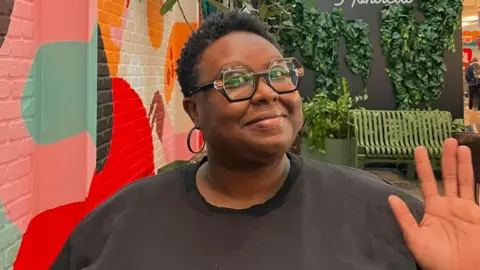 Ericka Alneus
Ericka AlneusSergio Da Silva’s live music bar Turbo Haus Club is located on Saint Denis Street in Old Montreal. He said the planned changes have not been fully considered.
“You can’t just say, ‘Here’s a 24-hour bar, have fun!’.
“There is no infrastructure to sustain that. There is no 24-hour public transport, no extra security.
“Then there is the cost of living. If people can’t afford to go out, no matter what 24-hour policy you put in place, it won’t change anything,” he added.
As the sun sets outside another bar, L’ile Noir, owner Michelle Lavellee disagrees — she has a different take on the closing time situation.
“In Montreal, we close at 3 a.m. People get drunk at 1 a.m. — and they get incredibly drunk at 3 a.m.
“One of the problems we had was, at 3 a.m. it was like crazy. But if you expand the hours, there are less problems, less need for security,” he explained.
Ms Alneus agrees. She says the fact that so many bars and clubs now close at 3am causes problems for police.
She believes that by allowing 24-hour drinking, venues that don’t want to stay open all night will be able to close at different times of the night.
She said closing at different times would provide “a little more safety in the areas at night”.
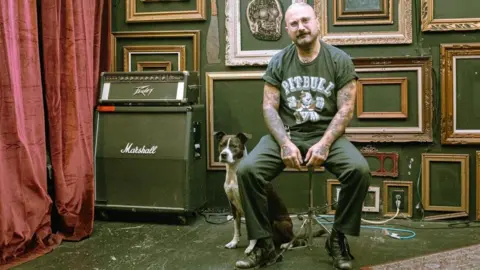 Sergio Da Silva
Sergio Da SilvaBack in 2012, the Dutch capital Amsterdam became the first city to appoint a night mayor – the post was given to club promoter and festival organiser Mirik Milan.
He said that in his six years in charge, alcohol-related violence and reports of nuisance behaviour had dropped by 20% and 30% respectively. Those statistics, he said, were important for local politicians to demonstrate to voters that “we’ve actually managed the night in a better way.”
Mr. Milan then co-founded VibeLab, a nightlife consultancy that advises governments around the world.
He said when a city considers nightlife as one of its important cultural assets, it can have a positive impact on the local economy worth billions of dollars.
“It drives tourism. It brings in a lot of creative operators and businesses that want to be in that city. And that has a huge impact on the entire city.”
Lutz Leichsenring, co-founder of VibeLab, has played a key role in promoting the nightlife scene as part of the Clubcommission in Berlin – an organisation that has represented around 280 nightclubs in the German capital since 2000.
“One of the strongest arguments in favor of nightlife is that it attracts talented and skilled workers,” he says.
“It’s just a very important factor in why people move to a city, or want to stay in that city and not move somewhere else.”
Rising temperatures due to climate change will only make the night-time economy more important in the summer months for many cities, Mr Leichsenring added.
He believes everything “from construction to education to cultural gatherings” will increasingly move to cooler times of the night.
“There needs to be better management of the night, because the more we move to the night, the more conflicts it creates, because people also want to sleep at night.”
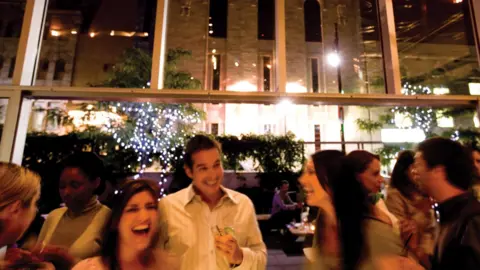 Catrine Daoust
Catrine DaoustMeanwhile, efforts to turn cities into all-night zones have – in some cases – failed to produce the expected results.
In 2017, London Mayor Sadiq Khan announced a proposal to create a 24-hour city, appointing American comedian Amy Lamé “as a nightlife advocate”.
Both are criticized earlier this year after claiming they had succeeded in their vision, with social media users expressing their disappointment with the hashtag ‘LameLondon’ on X.
The job of Sydney’s night mayor has also been faced with skepticism.
Jess Reia, an associate professor of data science at the University of Virginia, said sticking to a nightly schedule isn’t always easy, especially when governments change.
“The challenge is how to sustain good policies after a change of government – rather than having a pilot project for a few years and then ending up with nothing,” she said.
Back in Montreal, there’s no start date for 24-hour operations yet. Ms. Alneus said the intention is to launch sometime in the fall.
“We’re trying to be a pioneer and push something that people love,” she said.
“There are nighttime venues, artists, initiatives and performances that need to be illuminated – for the economic growth of the city, but also for the cultural identity of Montreal.”





